Stéphanie Jeanneret
Stéphanie Jeanneret
Research and Teaching Assistant
stephanie.jeanneretcuervo@unige.ch
As a Swiss-Colombian native, I lived in the USA where I received a Bachelor of Science degree in Psychology at the University of Texas at Austin. Currently, I am a second-year masters student at the University of Geneva. Under the co-supervision of Prof. Evie Vergauwe and Dr. Lea Bartsch, from the University of Zurich, my masters thesis is focused on disentangling the neural mechanisms of working memory, specifically that of attentional refreshing, by studying the brain’s electrical activity with EEG. As an RA in the lab, I am assisting with different projects also focused on working memory in adults: uncovering cognitive strategies such as verbal rehearsal with artificial intelligence (Dr. Kim Uittenhove), decoding verbal memory using EEG (Prof. Vergauwe and Dr. Bartsch), and better understanding the vulnerability of working memory (Dr. Naomi Langerock). Along with other lab members, I also take part in the Swiss Reproducibility Network Geneva Local Node’s activities, such as the ReproducibiliTea Journal Club, which promotes open and reproducible research practices in an interdisciplinary context.
Twitter: @steph_jeanneret
Linkedin
Ongoing projects

Refreshing is known to be a spontaneous mechanism for reactivating and maintaining information in working memory, when sufficient attention is available. Although it is well-known in the behavioral literature, the existence of refreshing and its characteristic properties are still debated today. Thus, in my master’s thesis, we are seeking to identify the neural underpinnings of refreshing in adults by decoding it using multivariate pattern analysis on electroencephalographic (EEG) data. By assessing WM representations and the brain’s electrical activity together, we may be able to better explain the nature of spontaneously reactivated working memory representations.
(Master’s co-supervisors: Evie Vergauwe and Lea Bartsch, University of Zurich; also in collaboration with lab members Nora Turoman and Prosper Fiave)
To be or not to be relevant: the long-term consequences of prioritization of working memory

(In collaboration with Evie Vergauwe and Lea Bartsch, University of Zurich)
Laboratoire Mémoire de travail, Cognition et Développement
Université de Genève
Faculté de psychologie et Sciences de l'éducation
Bureau 5158
40 Boulevard Pont d'Arve
1205 Genève


